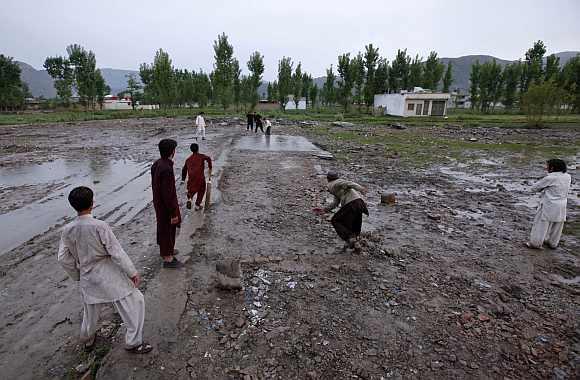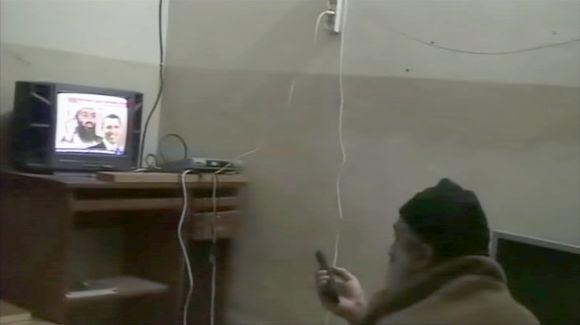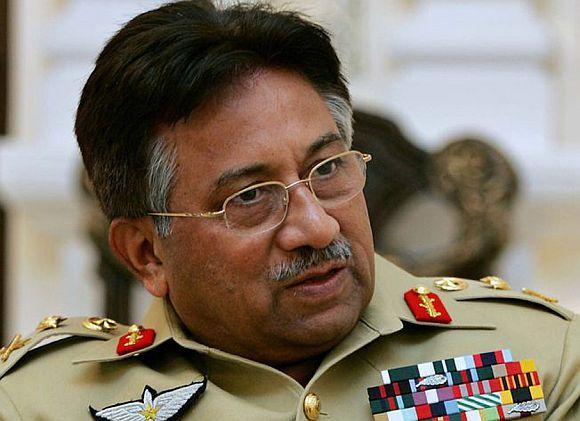
Pakistan's powerful military and its intelligence establishment have been hauled up by a panel that probed the presence of Osama bin Laden in the country saying the former Al Qaeda chief was able to stay on its soil since mid-2002 due to "collective failure, culpable negligence and gross incompetence".
According to the Abbottabad commission's investigations, Pakistan's intelligence establishment had "closed the book" on bin Laden by 2005, and was no longer actively pursuing intelligence that could lead to his capture.
Moreover, it found that there had been a complete collapse of governance and law enforcement -- a situation it termed "Government Implosion Syndrome", both in the lack of intelligence on Laden's nine-year stay in Pakistan, and in the response to the United States raid that killed him.
The 337-page classified document finds that "culpable negligence and incompetence at almost all levels of government can more or less be conclusively established".
The "Abbotabad commission" report has been authored by former supreme judge Javed Iqabl who was appointed by the government as chief of a five member team to trace down how bin Laden lived and was killed without official knowledge.
...

The Dawn said that the report was particularly critical of premier spy agency Inter-Services Intelligence for being so causal in first tracking bin Laden and then investigating the US attack which killed him on May 2, 2011.
The Bin Laden compound in Abbotabad, over 100 kilometers from capital Islamabad, was located close to the Pakistan Military Academy, the nursery of all officers of military, where he lived for about five years since 2005.
The Dawn says that the report was also critical of PMA commandant, an army major general, for obstructing the working civilian law enforcement agencies in its area. The Express Tribune said that civil and military leadership should "apologise" for their failure, but did not fix the responsibility on a single or group of persons.
"It is unnecessary to specify the names as its obvious who they are," the paper quoted the report. "It may be politically unrealistic to suggest punishments for them. But as honourable men, they ought to do the honourable thing, including submitting a formal apology to the nation for their dereliction".
It says that those individuals who wielded authority and influence the decision making in the country bear the responsibility of the creating circumstances which resulted in the May 2 incident.
...

The commission gives interesting details based on investigation of his wives. It shows that at few times the chief fugitive has close brush with Pakistan law enforcing agencies, including once in Swat where his car was stopped by police for over speeding but the driver quickly settled the issue.
He wore a cowboy hat while strolling in the compound in order to avoid detection by US satellite. He also lived frugally with just a few dresses and treated himself with Arabian herbals instead of seeing the doctors.
The report draws on testimony from more than 200 witnesses, including members of Bin Laden's family, Pakistan's then spy chief, senior ministers in the government and officials at every level of the military, bureaucracy and security services.
On the presence of a Central Intelligence Agency support network to help track down bin Laden in Pakistan without the Pakistani establishment's knowledge, the commission determined that "this [was] a case of nothing less than a collective and sustained dereliction of duty by the political, military and intelligence leadership of the country".
...

It also found that the US violation of Pakistani sovereignty, in carrying out the raid unilaterally, had been allowed to happen due to inaccurate and outdated threat assessment within the country’s defence and strategic policy establishments.
"It is official or unofficial defence policy not to attempt to defend the country if threatened or even attacked by a military superpower like the US?" the commission asked of several top military officers.
Military officers, including the chief of the country's air force, testified that Pakistan's low-level radar was on "peacetime deployment", and hence not active on the border with Afghanistan, when the raid occurred, Al Jazeera reported.
The report concludes that unless there are major changes to Pakistan's defence strategy, it remains vulnerable to a repeat of such an airborne raid.
Page 197 of the report, which contains part of the testimony of Lt Gen Ahmed Shuja Pasha, then director of the ISI, was missing from all copies of the report that Al Jazeera obtained from multiple sources. It is unclear what was contained in that page, but the contextual implication is that, among other things, it contains a list of seven demands made by the US to Pakistani President Pervez Musharraf in the aftermath of the 9/11 attacks in 2001, the TV channel said.
...